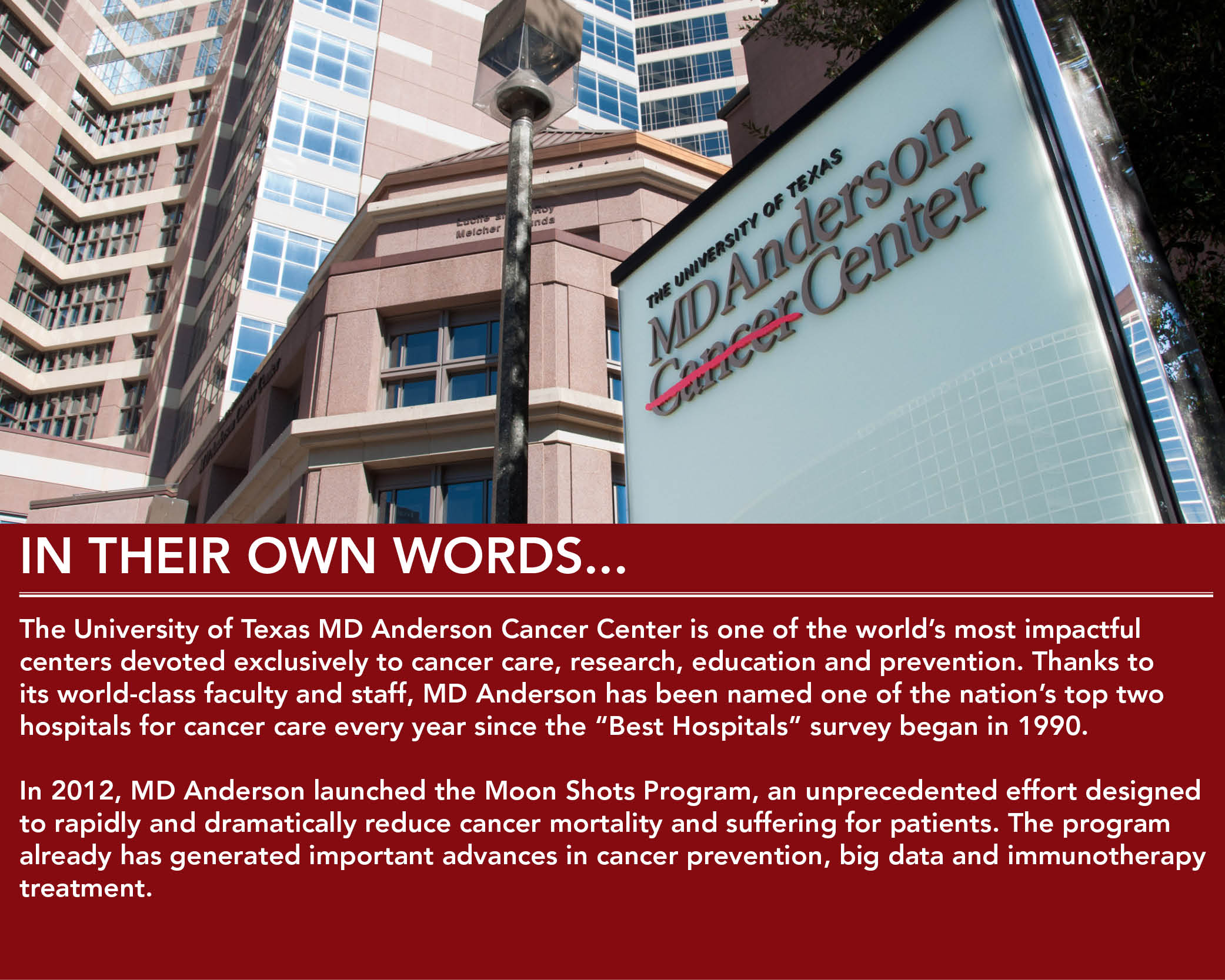University of Texas MD Anderson Cancer Center (Houston). MD Anderson and its nearly 20,000 employees are working to make cancer history. The hospital was established in 1941 by the Texas Legislature as the Texas State Cancer Hospital and the Division of Cancer Research before it was renamed after Monroe Dunaway Anderson, whose foundation helped fund the hospital.
MD Anderson was one of the original three comprehensive cancer centers designated by the National Cancer Act of 1971. Today, it remains one of the 45 National Cancer Institute-designated comprehensive cancer centers. U.S. News & World Report has ranked MD Anderson as one of the top two hospitals in the nation for cancer care every year since 1990, and it was deemed No. 1 in the publication's 2015-16 rankings. Additionally, MD Anderson is Magnet-recognized for nursing excellence.
Clinicians and scientists at MD Anderson attack cancer on multiple fronts. In fall 2012, the hospital launched its Moon Shots Program, for which the goal is to dramatically reduce mortality and suffering related to 12 cancer types and accelerate the conversion of scientific discoveries into clinical advances. The multidisciplinary push was inspired by the all-out team effort it took to meet President John F. Kennedy's promise to send an American to the moon only seven years after he made the pledge to do so in Houston in 1961. Recently, two cancer experts from the hospital were named to a 28-member panel to advise the National Cancer Institute in its work with Vice President Joe Biden's National Cancer Moonshot.
 |
 |





